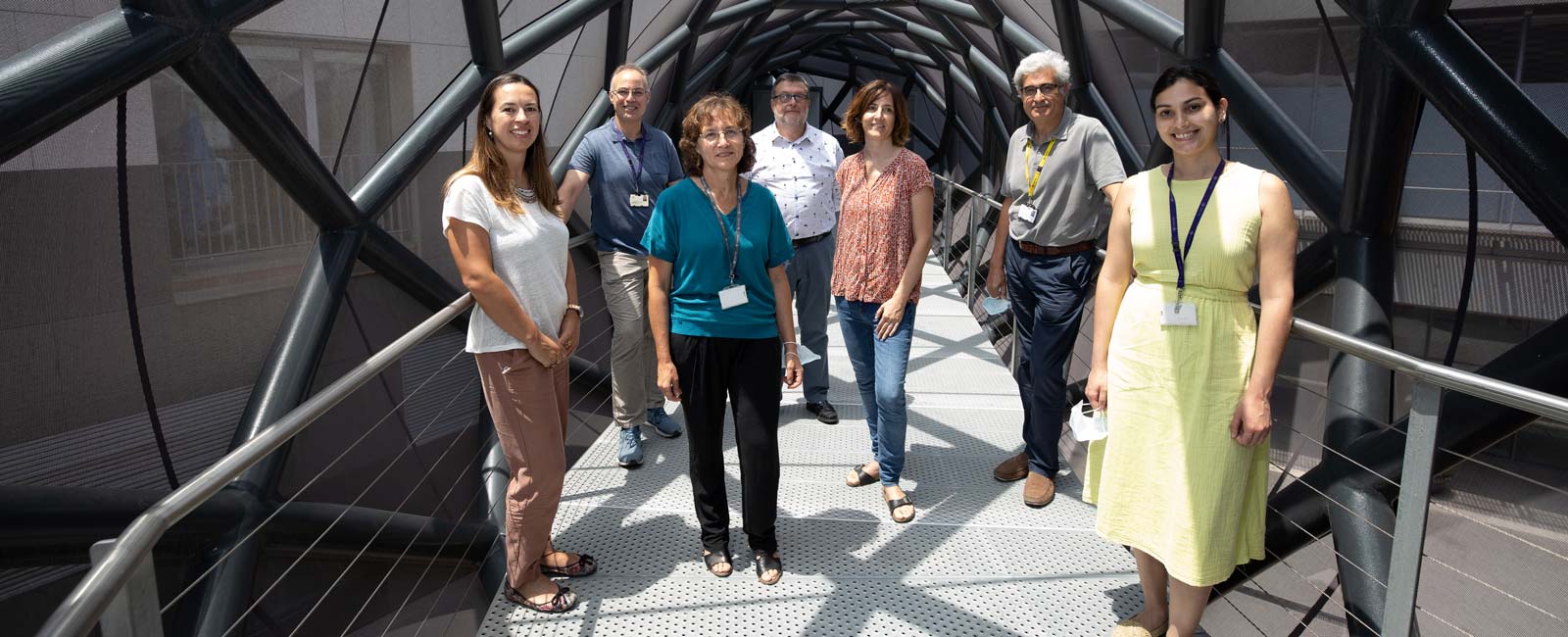
Discovery of a possible therapeutic alternative to slow the advance of pancreatic cancer
A team of scientists from CIBERCV, IIB Sant Pau, IIBB-CSIC and IMIM-Hospital del Mar have identified a possible therapeutic alternative for the treatment of pancreatic cancer by showing that the accumulation and aggregation of low density lipoproteins (LDLs) in the extracellular matrix increases cholesterol uptake by cancer cells, contributing to their growth. The study, published in the journal Cancers, is supported by a 2019 BBVA Foundation Grant for Scientific Research Teams in the Biology and Biomedicine area.
5 April, 2022
The accumulation of low density lipoproteins (LDLs) in the extracellular matrix plays a crucial role as a source of the cholesterol that contributes to the growth and proliferation of tumor cells in pancreatic ductal adenocarcinoma (PDAC), the most common type of pancreatic cancer. This is the finding of a study by a team from the Centro de Investigación en Red en Enfermedades Cardiovasculares (CIBERCV) , the Barcelona Institute for Biomedical Research of the Spanish National Research Council (IIBB-CSIC), the Sant Pau Research Institute (IIB Sant Pau) and the Hospital del Mar Medical Research Institute (IMIM-Hospital del Mar), published in the journal Cancers. This new research points to peptides that inhibit LDL aggregation as a promising therapeutic strategy to limit tumor cell proliferation.
Pancreatic ductal adenocarcinoma (PDAC) ranks among the toughest challenges in oncology, with a survival rate at five years no higher than 9%, making it the third leading cause of cancer deaths in the developed countries. Although much progress has been made in understanding the biology of PDAC, the major challenges to changing its prognosis lie in advances in early diagnosis and improving available therapies.
Dyslipidemia, a risk factor
One risk factor for this kind of pancreatic cancer is dyslipidemia which presents as increased numbers of small and dense low density lipoproteins. These LDLs have a high probability to be entrapped and modified (aggregated) in the extracellular matrix, becoming a source of cholesterol for tumor cells. “Our hypothesis is that aggregated LDLs provide a relatively inexhaustible source of cholesterol to PDAC cells and are a contributing factor for cell growth,” explains Vicenta Llorente, a researcher at CIBERCV, IIB Sant Pau and IIBB-CSIC, and one of the study’s coordinators.
In this project, the focus was firstly on the mechanisms that mediate the effect of aggregated LDL on the intracellular cholesteryl ester/free cholesterol ratio (CE/FC) and the growth of pancreatic tumor cells. In second place, the efficacy of peptides designed to inhibit LDL aggregation in these processes was considered as a potential anti-tumor therapeutic strategy. “LDL aggregation can be efficiently inhibited using peptides based on the low-density lipoprotein receptor-related protein LRP1,” Llorente adds.
To evaluate these two aspects, the team exposed human pancreatic cancer cell lines to native LDLs (nLDLs) or aggregated LDLs (AgLDLs) in the absence and presence of LRP1-based peptides. “Our results bear out that aggregated LDLs upregulate the CE/FC intracellular ratio, and that AgLDL-induced intracellular CE accumulation plays a crucial role in the growth and proliferation of pancreatic tumor cells,” Dr. Llorente explains. They also observed that the upregulatory effects were blocked by anti-LDL aggregation peptides, such that “these peptides may exhibit anti-tumor effects.”
In view of these findings, “we propose that anti-LDL aggregation peptides deserve to be further investigated as anti-tumoral strategies for this type of cancer.” An added advantage, the researchers conclude, is that “these peptides may help limit the proliferation of cancer cells at very early stages of the disease, which would be crucial for controlling tumor growth.”
This study received its main funding from the BBVA Foundation under the 2019 BBVA Foundation Grant Call for Scientific Research Teams, in the Biomedicine area, and from the Instituto de Salud Carlos III.
